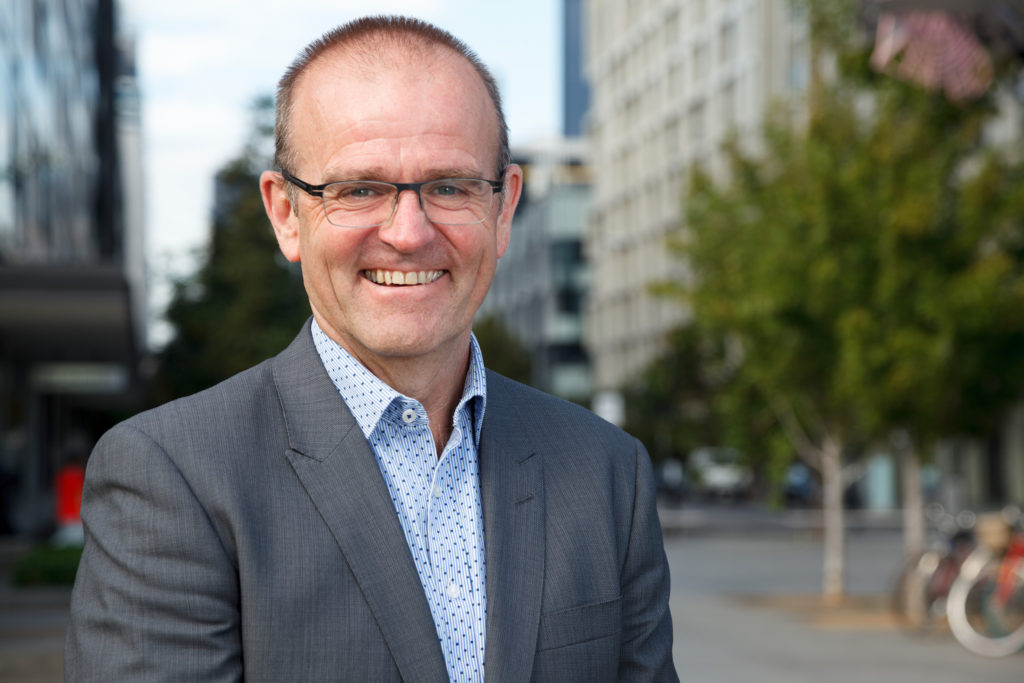Australia is a dynamic nation on the move – our communities are becoming increasingly diverse – not unlike most countries in this era of globalisation. Ethnic demographics are shifting, family structures are evolving, our environment is changing – our communities are in transition. And now, more than ever, a strong civil society built on solid partnerships is needed to navigate us through the ups and downs and to hold us together when there are so many forces acting to push us apart. These changes are an opportunity for our nation to re-examine who we are and who we want to become.
But with change comes challenges. When communities experience change, tribalism seeps in. Tribalism threatens to divide us based on race, based on religion, based on income – based on fear. When we fear those who are different, we dehumanise them, we refuse to relate to them and we grow suspicious of them. We begin to blame them for what we don’t have and grow resentful of what they do have. We become “us” and “them.” These divisions threaten to tear communities, societies and countries apart. They are often stoked by governments or are driven by profit. They play into a power dynamic that is hard to resist.
When civil society steps up, when communities gather together and when partnerships are formed, those divisions weaken and the fear falls away. Our communities are better when they are stronger, when they are cohesive and when they bind together with a common purpose and common values.
Civil society is the glue that binds communities, countries and our larger global society together. Civil society can be described as people with similar interests (but often different backgrounds) coming together in partnership to advocate for, gather around or be joined together in common cause. It’s a watchdog, a protector and an advocate for justice and equality. It provides checks and balances on governments, businesses and corporations. Civil society is often described as the ‘third sector’ of society comprised of community organisations, not-for-profits, unions, charitable and religious organisations. It is filled with groups who gather around shared interests and values and who form a community based on action.
Creating a strong civil society is imperative in a healthy democracy as it forces us to constantly re-examine our political structures and question the direction of democracies and to speak out when injustices occur.
Civil society acts as the safety net when governments fail and services are still needed. Think about the countless not-for-profits that mobilise to find housing for families who’ve lost a job and can’t afford rent. Or the various groups that prepare and serve hot meals to hungry veterans. There are community organisations that raise money for eyeglasses or dental work or a motorised wheelchair. Where would our society be without coalitions and partnerships speaking up to defend the disabled, to advocate for equal rights and to speak truth to power?
Civil society creates a space for us to strive for goodness, for equality and justice and to make or communities better. We can see civil society hard at work when it comes to questioning borders with BREXIT, or a wall between the United States and Mexico, or even our own offshore detention centre such as Manus Island. Civil society created a call to action publicly shaming sexism through the global #metoo movement. It is leading the charge in calling for dignity and protection of the most vulnerable among us seen through the Royal Commissions on Aging and on Disability.
Creating community and building partnerships can be a radical thing when you’re challenging the status quo or lending your voice to disempowered, vulnerable or stigmatised groups. Yet on any given day, our communities are supported by civil society partnerships, by community groups and volunteer organisations stepping up and stepping in where a void has been left and where a need exists.
Partnerships represent strength – and as we can all attest to, there is strength in numbers. A collection of voices is louder than one. Many hands make light work and when we all chip in and offer a helping hand, another voice, an encouraging word, we create a chorus of strength that is more powerful than any one of us.
There may be challenges along the way – partnerships require hard work. When partnership goals vary, here’s what you can do to remain on the same path:
- Don’t get distracted by small details, remember the bigger picture and larger goals and what brought you together in the first place.
- When disagreements occur, talk it out, listen and explore differing views. Consult others to gain a greater perspective.
- Have healthy and constructive discussions. Disagree civilly, and if you think mediation would help, seek it.
- If you cannot agree, separate respectfully. Follow your own course and look for new partnerships more in line with your goals.
As we know in life, some partnerships last forever and others fill short term needs – it can be disappointing when partnerships don’t work out but don’t let that get you down, there are always new and exciting connections to be made and causes to join.
Civil society is strengthened by partnerships and partnerships are about connectedness. When we connect, we find the common threads that bind us together and create something larger.
Civil society tends to be driven by the common good, by a shared belief that together we are better. And those of us who work in this wonderful ‘third sector’ of society understand and celebrate the power in partnerships in strengthening our ever-changing communities.
Andrew Cairns, CEO of Community Sector Banking.
- Gali Blacherhttps://thirdsector.com.au/author/gali-blacherthirdsector-com-au/
- Gali Blacherhttps://thirdsector.com.au/author/gali-blacherthirdsector-com-au/
- Gali Blacherhttps://thirdsector.com.au/author/gali-blacherthirdsector-com-au/
- Gali Blacherhttps://thirdsector.com.au/author/gali-blacherthirdsector-com-au/











